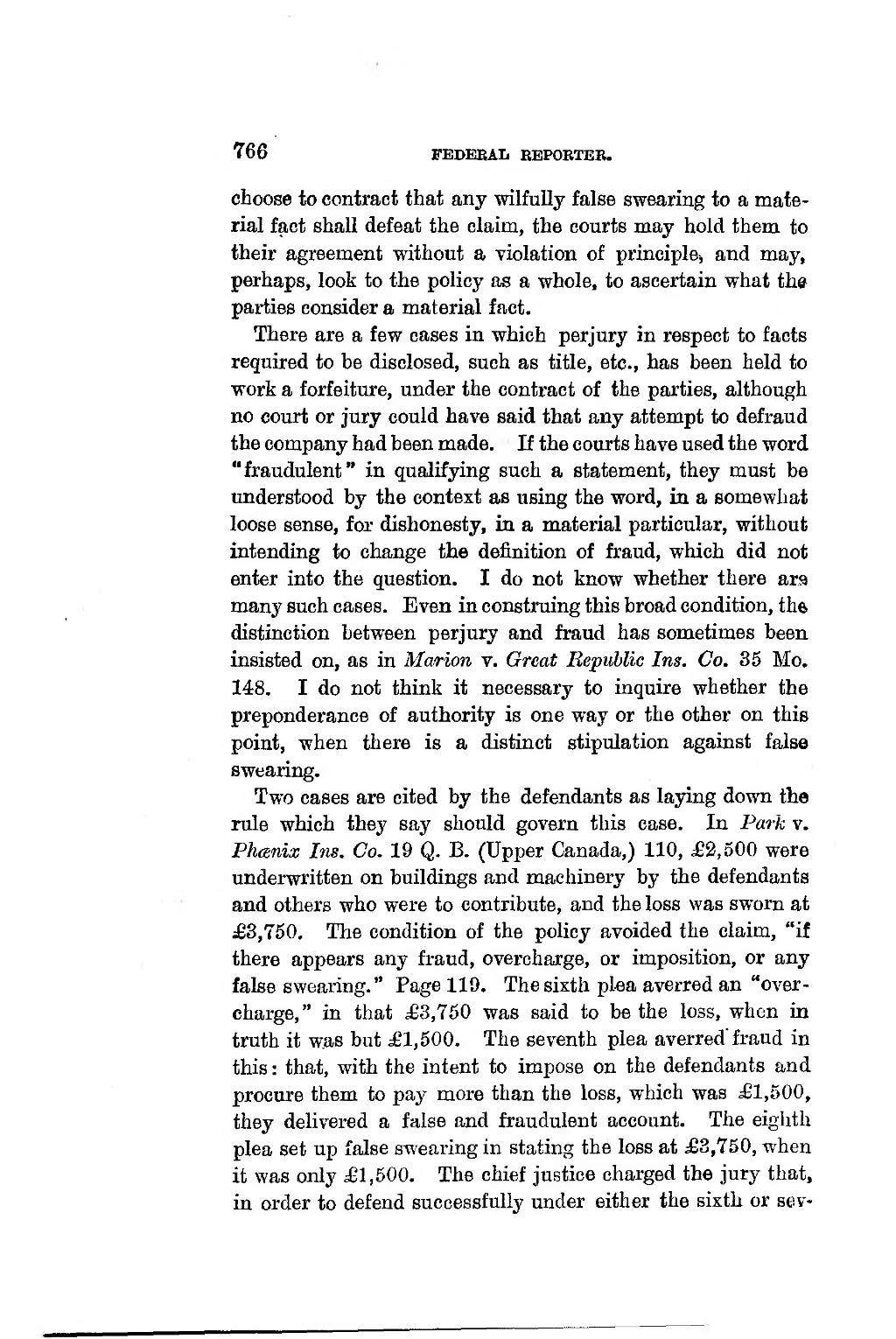766 FEDEEAL EBPORTEB. �choose to contract that any wilfully false swearing to a mate- rial fact shall defeat the claim, the courts may hold them to their agreement without a violation of principle, and may, perhaps, look to the policy as a whole, to ascertain what th» parties cousider a material fact. �There are a few cases in which perjury in respect to facts required to be disclosed, such as title, etc., has been held to ■work a forfeiture, under the contract of the parties, although no court or jury oould have said that any attempt to defraud the Company had been made. If the courts have used the word "fraudulent" in qualifying such a statement, they must be understood by the context as using the word, in a somewbat loose sense, for dishonesty, in a material particular, without intending to change the definition of fraud, which did not enter into the question. I do not know whether there ara many such cases. Even in construing this broad condition, the distinction between perjury and fraud has sometimes been insisted on, as in Marion v. Great BepubUc Ins. Co. 35 Mo. 148. I do not think it necessary to inquire whether the preponderance of authority is one way or the other on this point, when there is a distinct stipulation against false swearing. �Two cases are cited by the defendants as laying down the rule which they say should govern this case. In Park v. Phœnix Ins. Co. 19 Q. B. (Upper Canada,) 110, £2,500 were underwritten on buildings and machinery by the defendants and othei-s who were to contribute, and the loss was sworn at £3,750, The condition of the policy avoided the claim, "if there appears any fraud, overcharge, or imposition, or any false swearing." Page 119. The sixth plea averred an "over- charge," in that £3,760 was said to be the loss, when in truth it was but £1,500. The seventh plea averred' fraud in this : that, with the intent to impose on the defendants and procm-e them to pay more than the loss, which was £1,500, they delivered a false and fraudulent account. The eighth plea set up false swearing in stating the loss at £3,750, when it was only £1,500. The chief justice charged the jury that, in order to defend successfully under either the sixth or sev- ��� �
